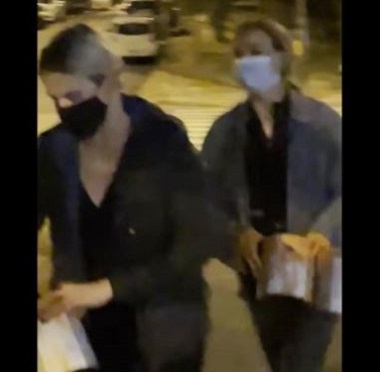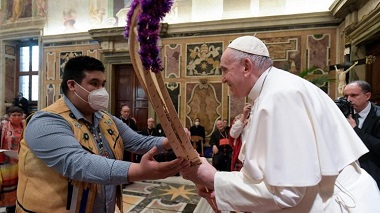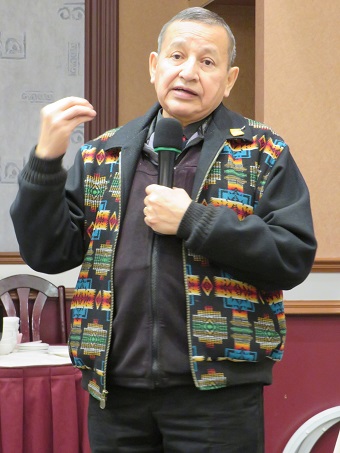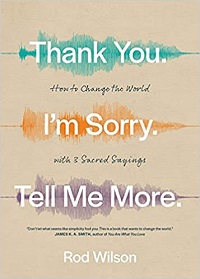
Emily Luba and her twin sister were filmed vandalizing St. Jude’s Church. From video on the church’s Facebook page.
Emily Luba received a conditional discharge March 30 after pleading guilty to having defaced St. Jude’s Catholic Church July 1, 2021.
She and her twin sister splashed orange paint on the walls and doors of the church, in the wake of the discovery of unmarked graves at the Kamloops Indian Residential School.
Luba was charged with mischief for damaging the church, but also in relation to a protest at Polaris Realty Canada Ltd. in April 2021.
She will have to pay a $1,250 fine, perform 40 hours of community service – and write a note of apology to the St. Jude’s congregation. The conditional discharge means she will not receive a criminal record.
An April 4 article in the National Post said:
Luba, [Judge Gregory] Rideout notes, has worked as a front-line worker assisting those affected by homelessness, poverty, addiction, mental health and trauma. This, along with a number of character references and what Rideout describes as a “heartfelt and genuine” apology for her role in the Polaris and St. Jude’s protest, were mitigating factors.
“I think of the church congregation who felt scared to worship due to the fear of escalating actions after I covered their church in orange paint. The congregation is composed of people, mostly elderly, none of whom are to blame for residential schools,” said Luba in her apology.
Luba will need to pay a fine of $1,250 regarding both protests, write a 500-word apology letter to the congregation and complete 40 hours of community service.
Luba was deeply upset by residential schools and other injustices perpetrated upon Indigenous people in Canada. So is the Pope, though in very different circumstances.
Pope Francis is sorry

Pope Francis met with delegations from Canada’s Indigenous peoples. Vatican Media.
The apology most in the news over the past week or two has been that of Pope Francis, from ‘will he apologize?’ to ‘he has apologized’ to ‘he will offer a full apology in Canada’ to ‘what will his apologies mean in practice?’
Following meetings with First Nations, Inuit and Metis delegates last week, the Pope met with them all on Friday (April 1). He said:
I also feel shame – sorrow and shame – for the role that a number of Catholics, particularly those with educational responsibilities, have had in all these things that wounded you, in the abuses you suffered and in the lack of respect shown for your identity, your culture and even your spiritual values.
All these things are contrary to the Gospel of Jesus Christ. For the deplorable conduct of those members of the Catholic Church, I ask for God’s forgiveness and I want to say to you with all my heart: I am very sorry. And I join my brothers, the Canadian bishops, in asking your pardon.
Clearly, the content of the faith cannot be transmitted in a way contrary to the faith itself: Jesus taught us to welcome, love, serve and not judge; it is a frightening thing when, precisely in the name of the faith, counter-witness is rendered to the Gospel.
Go here for the full text of his statement.
Indigenous response

Grand Chief Stewart speaking at a December 2018 event celebrating the work of Bill Chu with Indigenous people.
Asked by The Early Edition host Stephen Quinn what he made of the Pope’s apology (made just before the interview), Grand Chief Stewart Phillip, President of the Union of BC Indian Chiefs (UBCIC), said:
Quite frankly, I’m not a Catholic and I did not go to residential schools, but I can feel the power and the significance of this development, of this apology on behalf of the Pope. I believe that this news is reverberating through all of our communities, through the families that have suffered terrible losses.
I think today represents an opening of a door that’s been closed for so long and will facilitate through forgiveness an opportunity for our people to heal and for our elders to release resentments and anger and be fully available for their grandchildren to continue moving forward beyond the residential school issue.
Several delegates in Rome said they felt Pope Frances had really heard them.
A timely book
A local book, published earlier this year, offers a timely message. Rod Wilson, author, teacher, preacher – and former President of Regent College – spoke with his successor at Regent, Jeffrey Greenman during a book launch for Thank You. I’m Sorry. Tell Me More.
 Wilson considered the issue of ‘macro-level’ apologies (by governments, religious bodies, etc), but also addressed individual responsibility:
Wilson considered the issue of ‘macro-level’ apologies (by governments, religious bodies, etc), but also addressed individual responsibility:
I’ve heard people say, “I wasn’t even around when all that happened. I don’t feel sorry, not because I don’t care, like how can I feel sorry, I didn’t do it.”
That’s an understanding of sorry is about how you feel just north of your navel. So if you feel a certain way, you must feel sorry. . . . That’s a misunderstanding, not of Indigenous issues as much as a misunderstanding of apology.
Apology is not around my self-preoccupation with how badly I feel, but looking at that for what it is and understanding it. What I love about the Truth and Reconciliation work is, a lot of it is about listening, a lot of it is about hearing the stories, a lot of it is about having people tell you what it was like to see their siblings taken out of their home and moved far away and they never heard from them again.
That’s the first step in reconciliation, is hearing the impact. Then when you hear the impact, then it’s the true nature of metanoia [change in one’s way of life], you look at that and say, “That is appalling, that is wrong, and now, as a person who lives today, I’m going to commit to not participate in that level of injustice again. I’m going to do my part to live differently.”
The brilliance of the Truth and Reconciliation Commission is it’s a combination of listening and it’s also a recognition that I’m sorry is not about speaking, it’s about listening, which I think is very profound. But then it’s also fresh chance to commit that we’re not going to do the same thing moving forward.
Pope Francis clearly did a good job of listening, empathizing and assuring the assembled leaders that the Roman Catholic Church has learned its lesson.
Action to follow?
However, Grand Chief Stewart Phillip is still not convinced, despite his positive initial reception to the apology. An April 1 statement from the Union of BC Indian Chiefs is titled: ‘Tangible Commitments Must Accompany Pope’s Decades Late Apology for Residential Schools.’
Noting that Pope Francis offered words of apology and regret for the actions of some of the members of the Catholic Church who played a role in the operation of residential schools in Canada, he stated:
The Pope must come to Canada and offer a fulsome and unequivocal apology for the role of all of the Catholic entities and the Catholic Church in the residential school system.
This was more than abuses by a few individuals – it was in its entirety a massive human rights violation and part of a systemic and institutionalized attempt to destroy our communities that left deep intergenerational emotional damage and harm that continues to date.
We expect the Pope to accompany today’s apology with commitments to restitution and reparation, including to repatriate lands used for church mission work and to enter into a new relationship based on mutual understanding, self-determination and respect.

Deacon Rennie Nahanee says the Pope’s “apology needs to include reparations.”
Many Indigenous Catholics will agree with the UBCIC statement. A column by Rennie Nahanee on the CBC News site stated:
As an Indigenous permanent deacon in the Catholic Church, I see the trip to the Vatican as a starting place to actively seek reconciliation between the native people and the Catholic Church in Canada.
The church needs to develop protocols when engaging or inviting native people to their events. Native people need to develop Church protocols when engaging the church on matters relating to churches on reserves.
Due to the United Nations Declaration on Indigenous Peoples, and the Pope’s upcoming visit to Canada, the church needs to do more than listen and talk; there needs to be mutual consultations between both parties, similar to a treaty. . . .
I feel optimistic that Pope Francis would do well to convince the Catholic Church to let Indigenous people have masses in their own language, and increase efforts to help connect them to their culture and spirituality, after people learn to speak their mother tongue.
His apology needs to include reparations, and he must convince Catholics to help Indigenous peoples find healing through contributing to the Canadian Conference of Catholic Bishop’s reconciliation efforts and paying for language instruction.
Finally, it is essential that the church in Canada act on the [Truth and Reconciliation Commission’s] calls to action.
Go here for the full comment.
